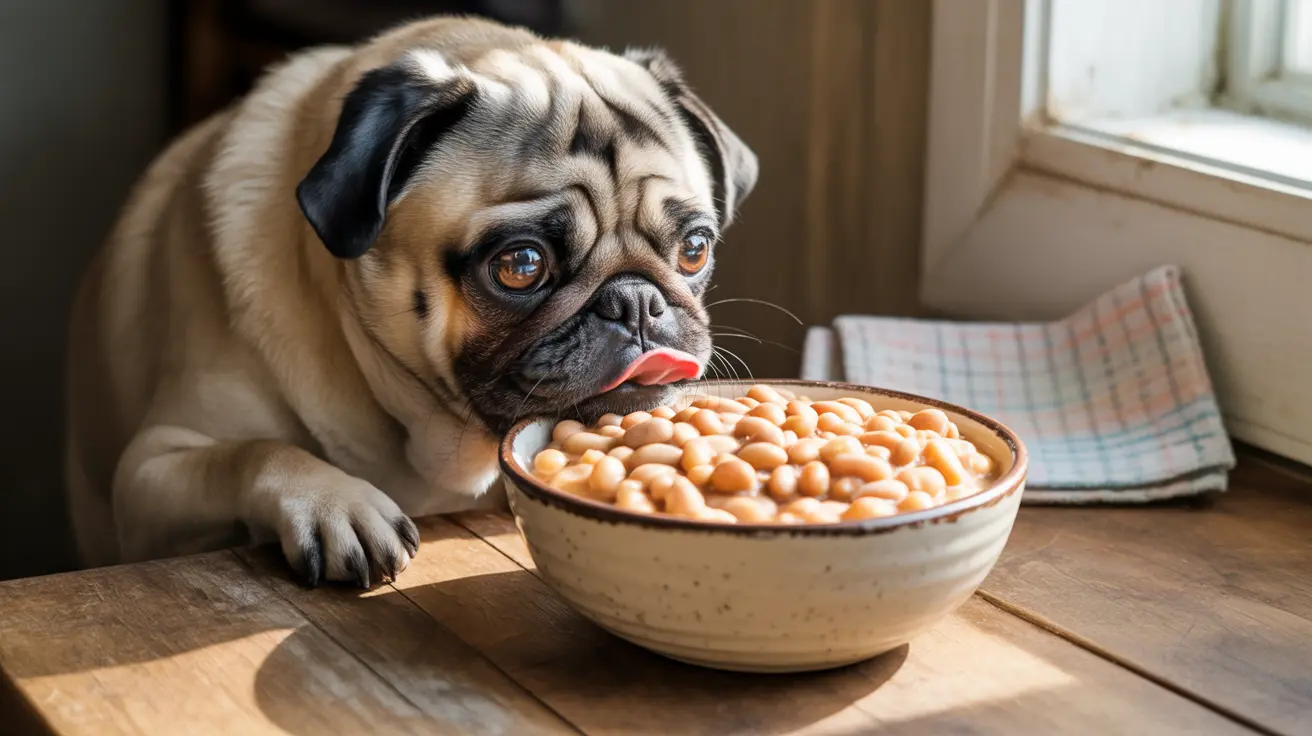As pet owners, we often wonder about sharing our favorite foods with our canine companions. When it comes to pork and beans, it's crucial to understand the potential risks and benefits before offering this human food to your dog. While some beans can be nutritious for dogs, the typical preparation of pork and beans poses several health concerns that pet owners should be aware of.
In this comprehensive guide, we'll explore whether dogs can safely eat pork and beans, what risks to watch out for, and how to safely incorporate beans into your dog's diet if you choose to do so.
Understanding the Risks of Pork and Beans for Dogs
Commercial pork and beans products are generally unsafe for dogs due to several problematic ingredients. These prepared dishes typically contain high levels of sodium, sugar, and seasonings that can be harmful to your pet. Moreover, many recipes include onions and garlic – ingredients that are toxic to dogs and can lead to serious health complications.
The fatty pork content in these dishes can also trigger pancreatitis in dogs, a painful and potentially dangerous condition that requires immediate veterinary attention.
Safe Bean Options for Your Dog
While pork and beans as a prepared dish should be avoided, certain plain beans can be safely fed to dogs in moderation. Safe options include:
- Black beans
- Lima beans
- Green beans
- Chickpeas
- Pinto beans
- Kidney beans (thoroughly cooked)
These beans should always be plain-cooked without any seasonings, salt, or additives. Never feed raw beans to your dog, as they contain lectins that can be toxic.
Proper Preparation and Serving Guidelines
If you decide to incorporate beans into your dog's diet, follow these essential guidelines:
- Cook beans thoroughly until soft
- Avoid all seasonings, including salt and spices
- Start with small portions to test tolerance
- Limit beans to no more than 10% of daily caloric intake
- Always serve at room temperature
Health Benefits and Nutritional Value
When properly prepared, beans can offer several nutritional benefits for dogs:
- High in protein and fiber
- Rich in vitamins and minerals
- Good source of antioxidants
- Can aid in weight management
- Provides sustainable energy
Signs of Digestive Issues to Watch For
When introducing beans to your dog's diet, monitor for these potential reactions:
- Excessive gas or bloating
- Diarrhea or vomiting
- Changes in appetite
- Lethargy or unusual behavior
- Signs of dehydration
Frequently Asked Questions
Can dogs eat pork and beans, and what are the potential health risks?
No, dogs should not eat prepared pork and beans dishes. The high sodium content, added sugars, and potentially toxic ingredients like onion and garlic make these products unsafe for canine consumption. The fatty pork content can also lead to pancreatitis.
What types of beans are safe for dogs to eat, and how should they be prepared?
Safe beans include black beans, lima beans, green beans, and chickpeas. They should be thoroughly cooked without any seasonings, salt, or additives. Raw beans should never be fed to dogs.
How can I introduce beans into my dog's diet without causing digestive issues?
Start with very small portions of plain, cooked beans mixed into their regular food. Monitor for any digestive upset and gradually increase the amount if no issues occur. Never exceed 10% of their daily caloric intake.
Are all canned beans harmful to dogs, or are there any exceptions?
Most canned beans are not recommended for dogs due to high sodium content and preservatives. If using canned beans, choose low-sodium varieties and rinse thoroughly before serving. However, fresh-cooked beans are always the safer option.
What are the nutritional benefits of beans for dogs, and how often should they be given as treats?
Beans provide protein, fiber, vitamins, and minerals beneficial to dogs. They should only be given as occasional treats, making up no more than 10% of their daily diet. They should never replace meat-based protein sources in a dog's regular diet.
Conclusion
While pork and beans as a prepared dish should be avoided, plain, properly cooked beans can be a healthy occasional treat for your dog. Always prioritize your pet's safety by avoiding seasoned or processed bean products, and consult with your veterinarian before making any significant changes to your dog's diet.






